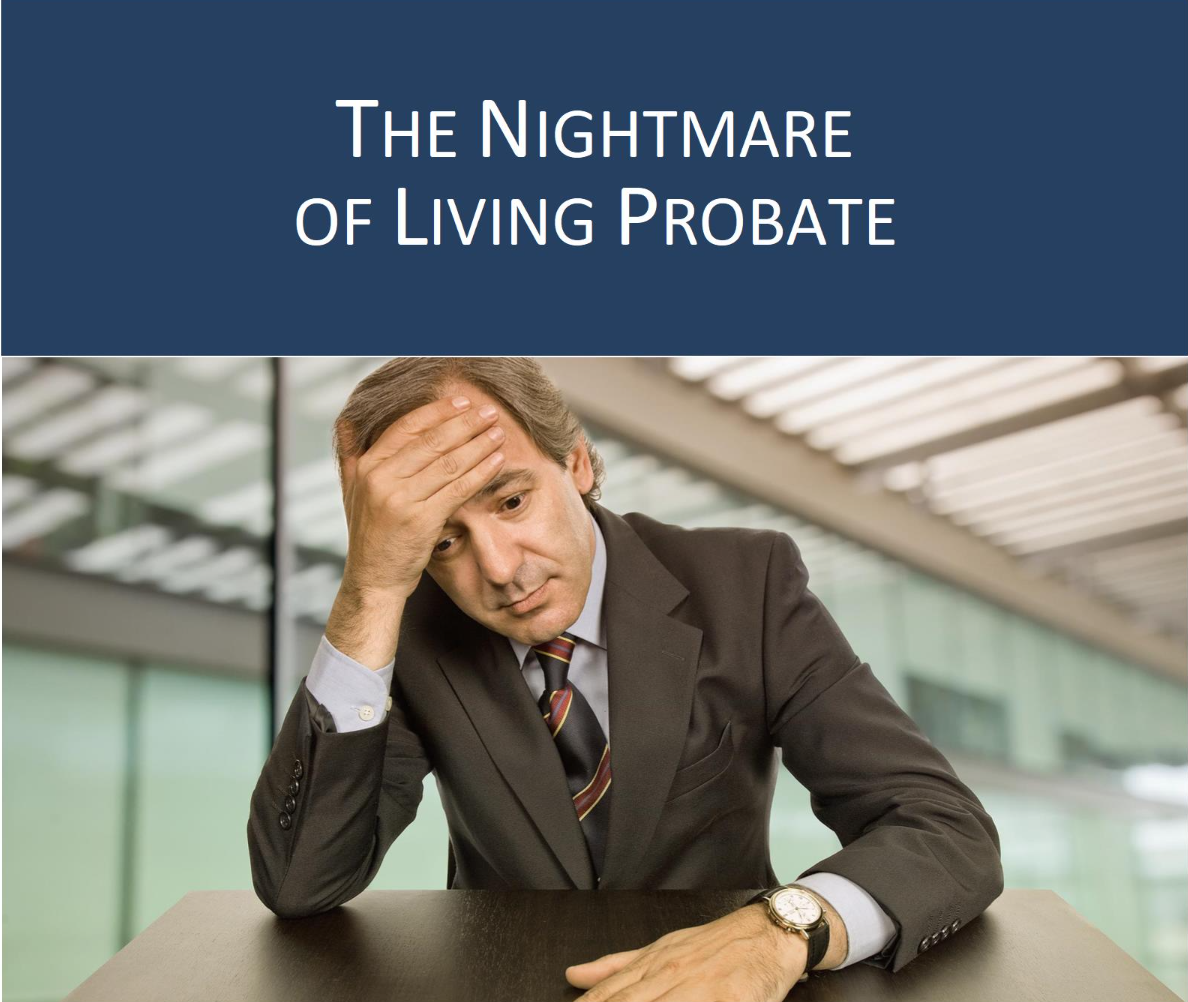
What Is Living Probate?


Many people know that probate occurs when someone dies with a will in force, or intestate—without a will. This legal process is so-called death probate, and it establishes the validity of the deceased’s will (or when there is no will, determines the deceased’s heirs). Probate also identifies and values the assets of the deceased; ensures that creditors are paid off; sees to it that the courts and attorneys get their fees for handling the probate; and lastly, distributes to the heirs whatever remains of the estate after all debts and expenses have been paid. As you may have guessed, probate is often a very costly, time-consuming, bureaucratic and public process.
What most Americans don’t know, however, is that they may find themselves in the midst of probate while they’re still alive. This living probate ensnares many of those who suddenly find themselves unable to make personal or financial decisions as a result of a serious injury or debilitating illness.




